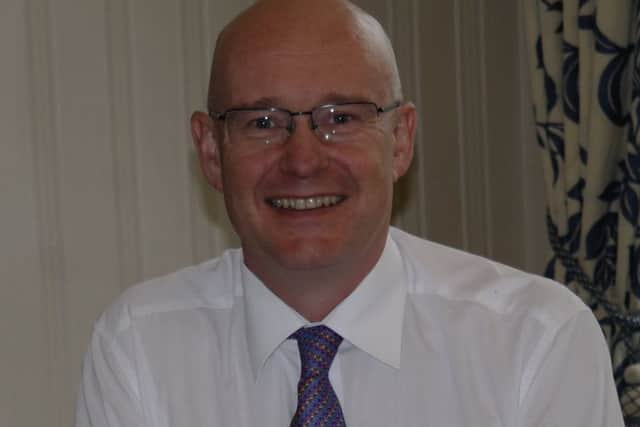Professor Harry McQuillan: Ditch e-cigs and quit for good


Nicotine vapour products (NVPs) seem to have come from nowhere and taken the UK by storm over the last five years or so, anecdotally helping a great number of people to quit smoking tobacco.
Health professionals have been reluctant to back the use of NVPs, as they were initially completely unregulated and neither their short nor long-term effects had been studied.
Advertisement
Hide AdAdvertisement
Hide AdSo, even though it might have seemed logical to assume that because they do not contain the thousands of harmful chemicals found in cigarettes they are therefore less dangerous, it was impossible to be sure that this was the case, and to an extent still is. Now, however, emerging studies are suggesting that the short-term effects of vaping are around 95 per cent less harmful than cigarette smoking, so we may see a move towards the NHS supporting the use of NVPs to help people stop smoking tobacco, then to stop smoking all together.


It should be noted though, that the long-term effects of vaping are still unknown, so it may be some time before confidence in e-cigarettes is high enough to allow this.
Importantly, the dramatic rise in e-cigarette use is just one of the many factors contributing to the decline in smoking rates – the remainder can almost all be attributed to a strong government policy on tobacco control, which community pharmacy teams play a large part in supporting.
The reduction in smoking rates over the last ten years from 26 per cent to 21 per cent of the population is an incredible achievement and testament to the willpower of the Scottish people, as without willpower, a quit attempt will never succeed. However, even with the necessary motivation, smoking can be one of the hardest habits to break, with a recent study suggesting that only heroin and crack cocaine are more addictive than nicotine.
Advertisement
Hide AdAdvertisement
Hide AdThis is where smoking cessation services come in, offering both pharmaceutical and behavioural support to those seeking help, all for free on the NHS. There are two main types of service available across the country. The NHS Board smoking cessation teams are specialists, providing support in a range of formats, from one-on-one appointments to group sessions. Community pharmacies make up the second, larger cessation service.


With 1256 access points right in the heart of Scotland’s communities, often open late and at weekends, our member pharmacies are responsible for more than 70 per cent of all supported quit attempts in Scotland. It has been part of our national contract since 2009, and often pharmacy teams find it is one of the most rewarding pieces of work that they are involved with.
What’s interesting is that although fantastic progress has been made, Scotland still compares poorly with the rest of the UK when it comes to smoking prevalence. This indicates that a great deal more work needs to be done to achieve the government’s ambitious plan for Scotland to be tobacco-free (less than five per cent of population smoking regularly) by 2034.
The community pharmacy sector is keen to support this work – the addition of the stop smoking drug Varenicline to our service in recent years will help us boost quit rates, and with enhanced training for pharmacy staff and hopefully a government-backed campaign to raise awareness, our teams are better equipped than ever to support smokers in taking their first steps to a life without tobacco.
Professor Harry McQuillan is chief executive of Community Pharmacy Scotland.